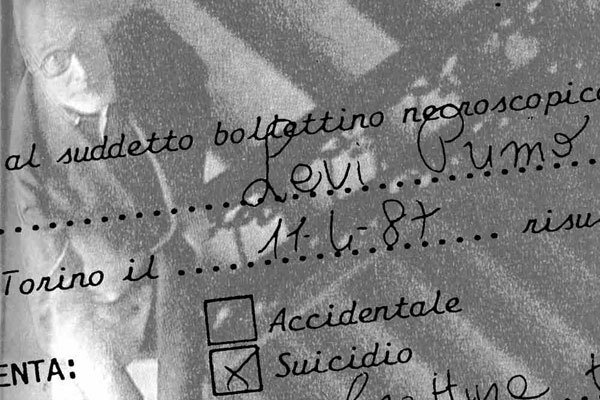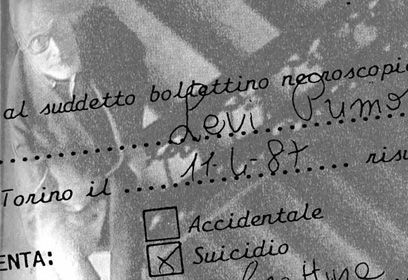
Nearly thirty years later, the circumstances of Primo Levi’s death continue to provoke debate. Recently The New Yorker published an article about Levi tied to the release of his Complete Works. The article repeats the generally accepted story that Levi—writer, chemist, humanist, and Holocaust survivor—took his own life. But, as a sharp reader with a long memory pointed out in a letter to The New Yorker, in 1999 Diego Gambetta cast doubt on this interpretation of events in a carefully researched and rigorously argued essay for Boston Review. “Primo Levi’s Last Moments” remains essential reading for those interested in Levi’s life. Indeed, Gambetta offers valuable insight beyond the case in question:
Devastating past events cast a shadow on future ones, and constrain our freedom to interpret them: if one survives Auschwitz, everything that happens subsequently tends to be interpreted in the light of that experience. There is no denying the awesome oppressive force of the nightmare Levi describes at the end of The Truce. It is not a matter of interpretation. Yet, while emotionally compelling, that by itself does not constitute evidence of anything. The Auschwitz hell may kill survivors decades later but it may also impair our ability to evaluate serenely the bare facts before us. It becomes a magnet-explanation.
As Gambetta notes, Levi’s death should not subtract from his works or from the hope he aimed to restore, a hope seemingly belied by suicide: “On that tragic Saturday only his body was smashed.”
With that in mind, we invite you to read Levi’s poem “Agave,” translated from the Italian by Jonathan Galassi, which appeared in our September/October issue and is now online.








